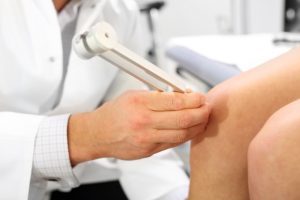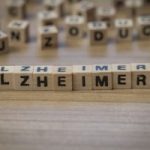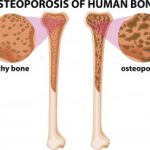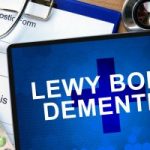 This weekly health news roundup presents our latest posts on osteoporosis, Alzheimer’s disease, stroke, diabetes, and Lewy body dementia. This week we learned that bone mineral density is impacted by quality of life, while cognition problems in Alzheimer’s disease may be improved with probiotics, we discussed balance problems in stroke, diabetes and bone loss, and compared Lewy body dementia and Parkinson’s disease.
This weekly health news roundup presents our latest posts on osteoporosis, Alzheimer’s disease, stroke, diabetes, and Lewy body dementia. This week we learned that bone mineral density is impacted by quality of life, while cognition problems in Alzheimer’s disease may be improved with probiotics, we discussed balance problems in stroke, diabetes and bone loss, and compared Lewy body dementia and Parkinson’s disease.
Osteoporosis risk in women linked to subjective well-being, a factor for higher bone density
Osteoporosis risk in women is linked to subjective well-being, a factor for higher bone density. Osteoporosis is a bone disease that leads to the loss of bone mineral density, which makes the bones weak and increases the risk of fractures. This condition is often seen among older adults, especially in women. The researchers found that older women with greater life satisfaction had lower rates of osteoporosis, compared to women who reported they were unsatisfied with their lives.
Advertisement
Data was collected from the Kuopio Osteoporosis Risk Factor and Prevention (OSTPRE) Study where researchers investigated various risk factors for osteoporosis and bone fractures. The respondents completed mail-in surveys and also underwent bone density measurements. Life satisfaction was measured using four questions pertaining to participants’ interest in life, and easiness of life, happiness, and loneliness. Based on their replies, the respondents were classified into one of the three groups: the satisfied, the middle group, and the unsatisfied. Continue reading…
 In Alzheimer’s disease, cognitive impairment may be improved with probiotics: Study
In Alzheimer’s disease, cognitive impairment may be improved with probiotics: Study
In Alzheimer’s disease, cognitive impairment may be improved with probiotics. Probiotics have been shown to help aid in other conditions such as IBS, IBD, allergies, colds, and many more. Although researchers have long hypothesized that probiotics may have a positive influence on cognitive health, there was little evidence to support this notion.
The idea that probiotics may support cognitive health stems from the fact that the brain and the gut are in constant communication with one another. Studies on mice taking probiotics have uncovered improvements in memory and thinking along with a reduction in anxiety and depression.
Until the latest findings, there was minimal evidence to demonstrate whether probiotics would have similar effects on humans. Continue reading…
 Stroke and balance problems: Causes and exercises to regain balance after stroke
Stroke and balance problems: Causes and exercises to regain balance after stroke
Balance problems are a common experience for people following a stroke. Insufficient co-ordination and stability can make people feel unsteady and lead to falls and lack of confidence. Thankfully, there are exercises that can help stroke sufferers regain balance.
The impact of stroke on balance can be complex, but we know that the brain sends signals to the muscles through the nerves to make them move and that a stroke can damage the brain, thus affecting these signals. Balance problems can involve various parts of the body, such as the eyes, ears, muscles, and joints. It is common for a whole side of the body to be weak following a stroke, yet in some cases, a person may only experience weakness in one arm or one leg. The muscle weakness can be mild or severe. Severe cases may even involve paralysis. Continue reading…
 Diabetes and bone loss: Strategies to manage bone health with diabetes
Diabetes and bone loss: Strategies to manage bone health with diabetes
Diabetes can increase the risk of bone loss, and the severity of diabetes can determine its impact on bone health. Osteoporosis is a consequence of diabetes, and both diabetes and osteoporosis have a high prevalence in America. The likelihood of developing both conditions increases with aging.
Advertisement
Type 1 diabetes causes bone mineral density loss, weakening the bones and thus leading to osteoporosis. In type 2 diabetes, though, there isn’t a great loss in bone mineral density. In fact, type 2 diabetics tend to have higher bone mass density than average. Unfortunately, many of these patients tend to be overweight, and that extra weight contributes to bone loss and bone weakening over time. Many studies have even shown that type 2 diabetics, even with above average bone mineral density, are still at a higher risk for bone fractures. Continue reading…
 Lewy body dementia, an umbrella term for both Parkinson’s disease dementia and dementia with Lewy bodies
Lewy body dementia, an umbrella term for both Parkinson’s disease dementia and dementia with Lewy bodies
Lew body dementia (LBD) is an umbrella term referring to both Parkinson’s disease dementia and dementia with Lewy bodies. In dementia with Lewy bodies, cognitive symptoms interfering with daily living present themselves before or within one year of Parkinson’s-like movement problems. In Parkinson’s disease dementia, cognitive symptoms usually don’t appear until after a year of the onset of movement problems.
Researcher Howard I. Hurtig explained, “An early and accurate diagnosis may be lifesaving. The avoidance of medications that can worsen the symptoms of LBD cannot be overemphasized. Every patient with LBD and their caregiver(s) should memorize the list of acceptable and forbidden drugs.” Continue reading…
